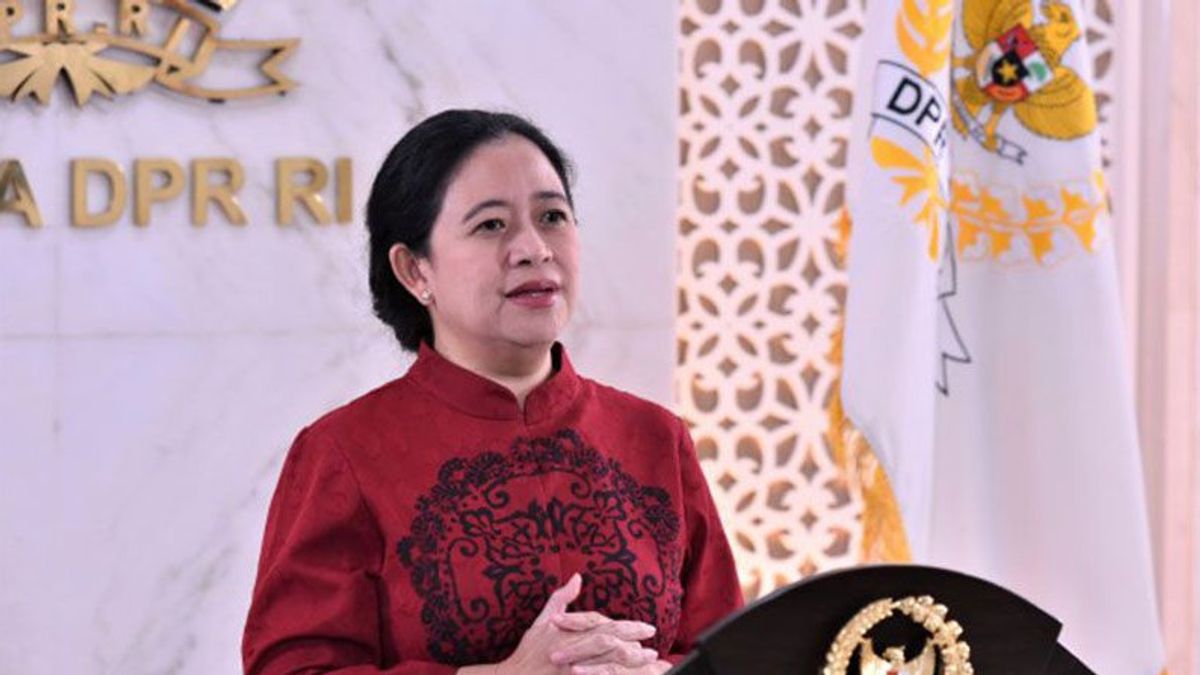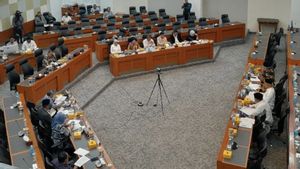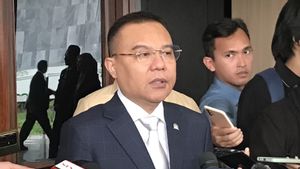JAKARTA - The government has submitted the Macroeconomic Framework and Principles of Fiscal Policy (KEM and PPKF) of the RAPBN for Fiscal Year 2023 in the plenary meeting of the DPR. Furthermore, the 2023 RAPBN will be discussed in the second half of this year.
DPR chairman Puan Maharani asked the government to continue to allocate subsidy funds for the poor in the 2023 State Budget Draft.
"We hope that the fiscal policy for the 2023 fiscal year, which is focused on increasing productivity for an inclusive and sustainable economic transformation, will remain grounded in the interests of the community, especially the underprivileged," said Puan in a written statement, Friday, May 20.
In submitting KEM and PPKF to the DPR in today's plenary session, the government proposed a 2023 budget deficit of 2.61-2.90 percent of gross domestic product (GDP). The budget deficit in 2023 is lower than this year's estimated deficit of 4.3-4.5 percent of GDP.
Meanwhile, for economic growth in 2023, the government proposes a target of around 5.3-5.9 percent. Meanwhile, inflation is in the range of 2.0-4 percent.
Puan also supports the 2023 APBN policy which is designed to be able to respond to the dynamics of the domestic and global economy. He said that next year's APBN policy will also answer challenges and support the achievement of development targets optimally.
"The DPR RI and the government must continue to be aware of the major challenges facing the Indonesian economy in the days ahead. Moreover, from the domestic side, the impact of the COVID-19 pandemic crisis still leaves scars for the economy," explained Puan.
Puan also requested that in the process of economic recovery, there is still an allocation of subsidies and compensation to protect the poor. Because Puan assessed, there are still many small people who need assistance from the state because the COVID-19 pandemic which has an impact on the community's economy is still quite pronounced.
"Therefore, we welcome the subsidy allocation plan in the 2023 RAPBN of IDR 350 trillion, which is focused on pertalite and electricity subsidies so that the price of pertalite does not increase and electricity tariffs for low-income consumers do not increase," he said.
Puan reminded that the 2023 RAPBN must also include programs to reduce poverty and unemployment in Indonesia, which has not yet returned to the way it was before the COVID-19 pandemic. In addition, said Puan, there must also be efforts so that the business world can revive.
Moreover, he added, the prolonged geopolitical tensions between Russia and Ukraine had an impact on increasing global commodity prices which also contributed to the risk of increasing domestic inflation.
"It is also possible for the 2023 state budget to bear a number of state financial burdens caused by developments and dynamics of the global economy, particularly those related to oil," said Puan.
With this condition, Puan hopes that the fiscal policies of the 2023 APBN that are available to carry out government functions and national development are carefully designed. He also reminded the Government to prioritize the completion of ongoing national strategic programs.
"The DPR will continue to monitor the strengthening of public service programs in matters of health, education, social protection, housing, the people's economy, and job creation," concluded Puan.
The English, Chinese, Japanese, Arabic, and French versions are automatically generated by the AI. So there may still be inaccuracies in translating, please always see Indonesian as our main language. (system supported by DigitalSiber.id)













